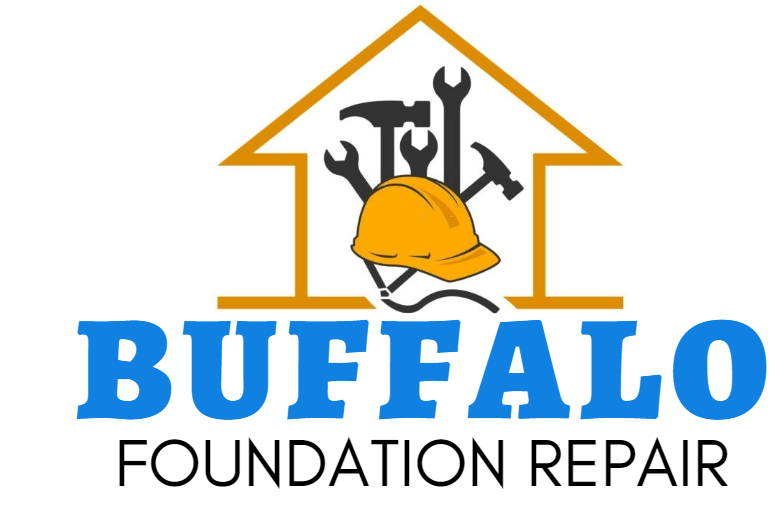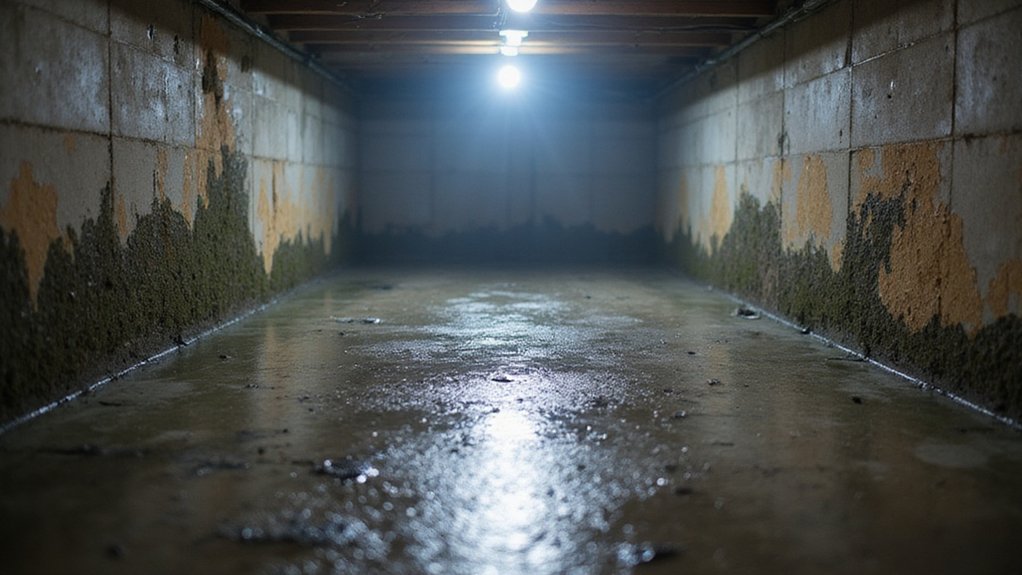As a homeowner in Western New York, you know all too well the impact of the region’s seasonal weather on your basement. With heavy snowmelt in spring and increased precipitation during fall, you may find your basement prone to dampness and water intrusion. Understanding these seasonal fluctuations is key to anticipating and addressing moisture-related issues before they escalate. Effective basement waterproofing can help maintain a dry, comfortable living space year-round, despite the unpredictable precipitation patterns common in this area.
Seasonal Fluctuations in Basement Moisture
Throughout the year, you may notice seasonal fluctuations in the moisture levels of your basement. During the spring and fall, heightened soil saturation levels due to increased seasonal precipitation patterns can lead to augmented moisture in your basement. Conversely, the drier summer and winter months may bring a noticeable decrease in basement dampness. Understanding these seasonal variations can help you anticipate and address basement moisture issues more effectively. Basement waterproofing solutions can help maintain a dry, comfortable living space year-round.
Snowmelt and Basement Flooding
As the seasons change, you may face another pressing issue – the threat of snowmelt flooding your basement. During the spring thaw, the sudden influx of melting snow can overwhelm the basement water table levels, leading to unwanted water intrusion. This can lead to structural problems and requires prompt attention to address the issue.
This is especially true in Western New York, where seasonal precipitation patterns can be unpredictable. Addressing this problem proactively is pivotal to maintaining a dry and healthy basement environment. By understanding the factors that contribute to snowmelt-induced flooding, you can take the necessary steps to protect your home and avoid costly repairs.
Freeze-Thaw Cycles and Structural Damage
Do you know that the freeze-thaw cycles common in Western New York can also wreak havoc on your basement’s structural integrity? As the ground alternates between freezing and thawing, the soil expands and contracts. This can put immense pressure on your basement walls and floor, leading to cracks, spalling, and even collapse over time.
The concrete in your basement is especially vulnerable to this freeze-thaw deterioration. Addressing these issues promptly is indispensable to maintaining the safety and longevity of your home’s foundation. By understanding how the regional climate impacts your basement, you can take proactive steps to protect your investment.
Humidity and Condensation Issues
While the region’s freeze-thaw cycles can compromise your basement’s structural integrity, heightened indoor humidity and condensation can also pose a significant challenge. Excess moisture in the air can lead to air quality concerns, providing the ideal conditions for mold growth. Implementing effective mold prevention strategies is vital to safeguarding your home and family’s well-being.
Guarantee proper ventilation, use dehumidifiers to regulate indoor humidity, and address any leaks or water infiltration promptly. By addressing humidity and condensation issues, you can maintain a healthy, comfortable basement environment and avoid the costly consequences of mold.
Groundwater Intrusion and Foundation Cracks
Besides the challenges posed by humidity and condensation, your basement may also be susceptible to groundwater intrusion and foundation cracks. The soil composition and water table levels in your area can contribute to these issues.
Groundwater can seep through cracks in your foundation, leading to dampness, mold, and further structural damage. Foundation cracks may result from soil shifting, water pressure, or even the natural settling of your home over time.
Addressing these problems immediately is vital to preventing more extensive damage and costly repairs. Consulting a professional may be the best way to identify the root cause and implement effective solutions.
Mitigating Basement Moisture in Western NY
Although basement moisture can be a stubborn issue in Western New York, there are effective steps you can take to mitigate it. Consider these three strategies:
- Install a high-quality dehumidification system to regulate humidity levels and prevent the buildup of excess moisture.
- Implement a French drain system to divert groundwater away from your home’s foundation, reducing the risk of moisture intrusion.
- Seal any cracks or gaps in your basement’s walls and floors to prevent water from infiltrating, complementing the dehumidification and drainage solutions.
Maintaining a Dry and Healthy Basement Environment
Maintaining a dry and healthy basement environment is imperative in Western New York, where damp conditions can quickly lead to mold growth, musty odors, and a range of health concerns. Investing in a high-efficiency dehumidifier is a must, as it effectively controls moisture levels and prevents the buildup of excess humidity.
Additionally, implementing proper basement waterproofing solutions, such as sealants and drainage systems, can fortify your efforts to maintain a dry and comfortable living space. By taking these proactive steps, you’ll enjoy a healthier, more inviting basement environment that serves your family’s well-being.
Frequently Asked Questions
Can I Install a Dehumidifier in My Basement to Reduce Moisture?
You can install a dehumidifier in your basement to reduce moisture. Consider also basement ventilation options and moisture detection systems to manage humidity and prevent mold or mildew buildup.
Do I Need to Seal My Basement Walls to Prevent Moisture?
Sealing your basement walls could help manage seasonal humidity fluctuations. Investigate basement waterproofing methods to prevent moisture intrusion and maintain a dry, comfortable living space.
How Often Should I Inspect My Basement for Signs of Moisture?
Regularly inspect your basement for signs of moisture through visual inspections. Identifying moisture sources like leaks or high humidity can help you address issues before they become larger problems and maintain a dry, comfortable living space.
Can I Paint My Basement Walls to Prevent Moisture Issues?
Painting basement walls can help, but it’s not a long-term solution. Basement wall sealants work better to prevent moisture issues. This will create a barrier and keep your basement dry.
Should I Hire a Professional to Address My Basement Moisture Problem?
You should hire a professional basement waterproofing service to address your moisture problem. They’ll perform a professional mold inspection and provide the know-how to properly waterproof your basement, keeping it dry and protected.


Recent Comments